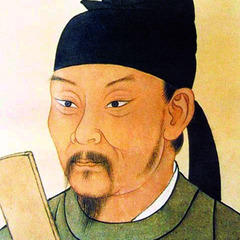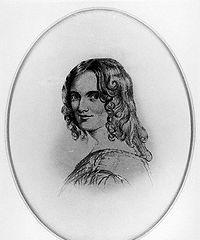Samuel Taylor Coleridge Quotes - Page 10

Samuel Taylor Coleridge (1856). “The Complete Works of Samuel Taylor Coleridge: With an Introductory Essay Upon His Philosophical and Theological Opinions”, p.298
A man of maxims only is like a Cyclops with one eye, and that in the back of his head.
Samuel Taylor Coleridge, William Greenough Thayer Shedd (1854). “The Complete Works of Samuel Taylor Coleridge: With an Introductory Essay Upon His Philosophical and Theological Opinions”, p.286
Samuel Taylor Coleridge, Henry Nelson Coleridge, Kathleen Coburn, Bart Keith Winer, Carl Woodring (1990). “Collected Works of Samuel Taylor Coleridge: Table Talk (2 v.)”, Bollingen Foundation
Samuel Taylor Coleridge (1858). “The complete works of Samuel Taylor Coleridge: With an introductory essay upon his philosophical and theological opinions”, p.335
Samuel Taylor Coleridge (1912). “The Complete Poetical Works of Samuel Taylor Coleridge”, p.1199, Library of Alexandria
For mother's sake the child was dear, and dearer was the mother for the child.
'Sonnet to a Friend Who Asked How I Felt When the Nurse First Presented My Infant to Me' (1797)
Samuel Taylor Coleridge, Henry Nelson Coleridge, John McVickar (1854). “Coleridge's Aids to reflection: with the author's last corrections”, p.141
Samuel Taylor Coleridge, James MARSH (D.D.) (1829). “Aids to reflection, in the formation of a manly character ... illustrated by select passages ... especially from Archbishop Leighton ... First American, from the first London edition ... Together with a preliminary essay, and additional notes, by James Marsh”, p.1
Samuel Taylor Coleridge (1989). “Coleridge's Criticism of Shakespeare”
Samuel Taylor Coleridge (1867). “The Friend: a series of essays ... First American, from the second London edition”, p.40
Veracity does not consist in saying, but in the intention of communicating the truth.
Samuel Taylor Coleridge, James Engell, Walter Jackson Bate (1984). “Biographia Literaria, Or, Biographical Sketches of My Literary Life and Opinions”, p.157, Princeton University Press
1798 'The Rime of the Ancient Mariner', pt.7.
Samuel Taylor Coleridge (1831). “Aids to Reflection in the Formation of a Manly Character on the Several Grounds of Prudence, Morality, and Religion: Illustrated by Select Passages from Our Elder Divines, Especially from Archbishop Leighton”, p.181
Samuel Taylor Coleridge, William Greenough Thayer Shedd (1854). “The Complete Works of Samuel Taylor Coleridge: With an Introductory Essay Upon His Philosophical and Theological Opinions”, p.364
Samuel Taylor Coleridge, Henry Nelson Coleridge (1851). “Specimens of the Table Talk of Samuel Taylor Coleridge”, p.11
That saints will aid if men will call; For the blue sky bends over all!
Samuel Taylor Coleridge (1854). “The complete works of Samuel Taylor Coleridge: With an introductory essay upon his philosophical and theological opinions”, p.258
Samuel Taylor Coleridge, James MARSH (D.D.) (1829). “Aids to reflection, in the formation of a manly character ... illustrated by select passages ... especially from Archbishop Leighton ... First American, from the first London edition ... Together with a preliminary essay, and additional notes, by James Marsh”, p.397






